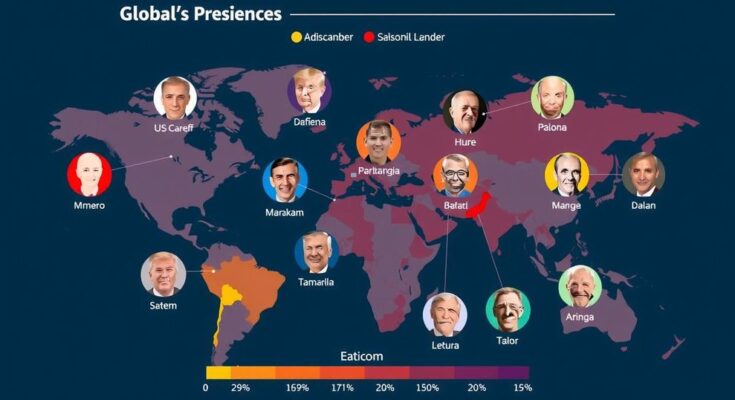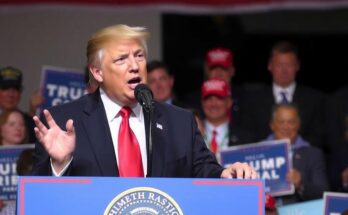As the U.S. presidential election nears, world leaders have distinct preferences: Vladimir Putin may favor Trump for his perceived leniency towards Russia, while European leaders lean towards Harris for stability in NATO relations. China’s Xi Jinping remains neutral, and India’s Modi maintains balanced ties, reflecting a mix of geopolitical interests. The varied stances indicate significant implications for U.S. diplomacy.
As the United States presidential election on November 5 approaches, a closely contested race emerges between Democratic Vice President Kamala Harris and Republican former President Donald Trump. Given the geopolitical significance of U.S. leadership, world leaders are closely monitoring potential outcomes and their preferences vary significantly. Russian President Vladimir Putin, while hinting at a preference for Harris, appears to favor a Trump victory due to his perception that Trump might ease sanctions on Russia and reduce military support for Ukraine. Analysts note that Putin admires Trump’s authoritarian style and may desire continued turmoil in Western democratic institutions. China’s President Xi Jinping remains neutral but has maintained a challenging stance toward both candidates. Despite Trump’s past trade wars, there are indications that Chinese officials might lean toward Harris, reflecting concerns over the U.S. policy direction. Israeli Prime Minister Benjamin Netanyahu has not announced an endorsement but is believed to favor Trump, with whom he had a close relationship during Trump’s presidency. Conversely, European leaders generally demonstrate a preference for Harris, perceiving her as more conducive to NATO cooperation, given Trump’s past threats to withdraw from the alliance. In Asia, Indian Prime Minister Narendra Modi maintains a balanced view, recognizing the importance of a continued strong U.S.-India partnership regardless of the electoral victor. Meanwhile, South Korea and Japan are cautiously observing the election outcome, with concerns about their security relationships potentially shifting depending on the next U.S. administration. In conclusion, the preferences of world leaders regarding the U.S. presidential candidates underscore their implications for global politics and alliances. While Trump’s relationship with some leaders appears favorable, the consensus from many global capitals leans towards a Harris presidency for its anticipated alignment with established diplomatic norms.
The upcoming U.S. presidential election holds significant importance on the global stage, prompting leaders from various countries to express their preferences for either candidate, Kamala Harris or Donald Trump. This analysis examines the potential views of key international leaders, considering historical relationships, current geopolitical contexts, and the implications for global diplomacy.
The landscape of international relations reveals a mixture of preferences among world leaders regarding the candidacy of Kamala Harris or Donald Trump. While Trump may appeal to some leaders for his potentially lenient policies towards nations like Russia and Israel, many European leaders show support for Harris, indicating a collective hope for stability and cooperation in global governance. Each candidate presents distinct pathways for U.S. foreign policy, thus the preferences of various world leaders underscore a complex web of international diplomacy that will be influenced by the election outcome.
Original Source: www.aljazeera.com




